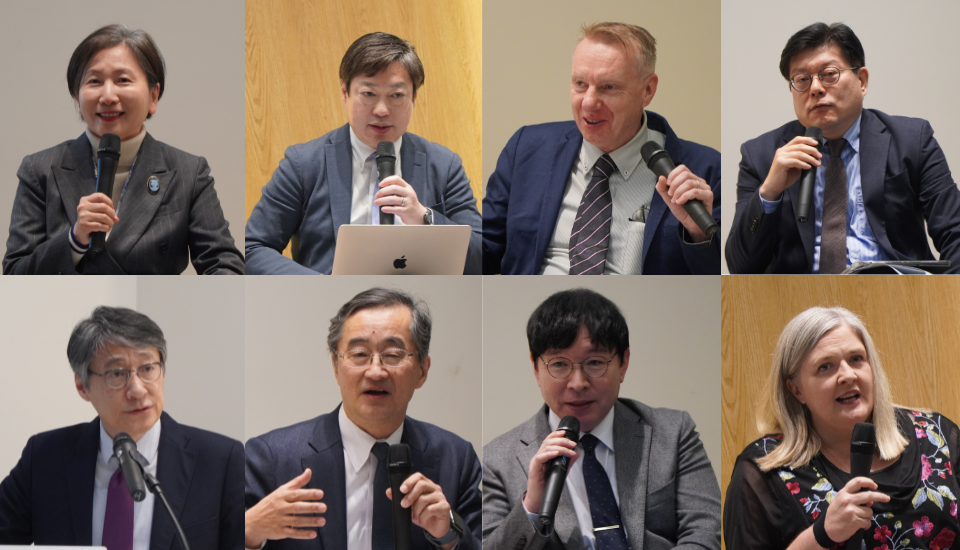![[ROK-Japan-Australia Trilateral Conference] ROK-Japan-Australia Cooperation in Trump 2.0](/data/bbs/eng_multimedia/2025040215755609143743.png)
[ROK-Japan-Australia Trilateral Conference] ROK-Japan-Australia Cooperation in Trump 2.0
| Multimedia | 2025-01-24
EAI
The opening session of the "ROK-Japan-Australia Cooperation in Trump 2.0" conference explored the evolving Indo-Pacific dynamics under the second Trump administration. Representatives from South Korea, Japan, and Australia emphasized the need for trilateral cooperation to address U.S. policy shifts and uphold a rules-based order. They highlighted progress in defense and economic partnerships, stressing middle-power collaboration to shape the region's future. Speakers called for innovative strategies to tackle shared challenges, strengthen alliances, and ensure regional peace and stability.
The first session session explored the strategic implications of Trump’s return and its impact on the Indo-Pacific. Professor Chaesung Chun (EAI; Seoul National University) analyzed the shift toward coercive hegemony under Trumpism, highlighting challenges for South Korea in addressing regional security and North Korea’s nuclear ambitions. Professor Jimbo Ken (Asia Pacific Initiative; Keio University) addressed Japan’s dilemmas in balancing U.S. alliances with China’s rise, emphasizing minilateral frameworks like QUAD. Professor Thomas Wilkins (University of Sydney) explored Australia’s pivotal role in advancing trilateral cooperation, advocating for strengthened alliances and diversified partnerships to ensure regional stability.
This session examined the economic impacts of a second Trump administration on Australia, Japan, and South Korea. Dr. Melissa Conley Tyler (Asia-Pacific Development, Diplomacy & Defence Dialogue) emphasized Australia’s adaptation through diversification, green energy, and critical minerals. Dr. Kimura Fukunari (Institute of Developing Economies, JETRO) highlighted Japan’s resilience to tariffs, concerns over tech export controls, and trade shifts in ASEAN. Dr. Siwook Lee (Korea Institute for International Economic Policy) addressed South Korea’s trade vulnerabilities, potential gains from diversion, and challenges from U.S.-China decoupling. The panelists underscored the importance of trilateral cooperation in green energy, critical minerals, and regional economic frameworks to uphold a rules-based order and address growing uncertainties.

Center for Japan Studies
Center for National Security Studies